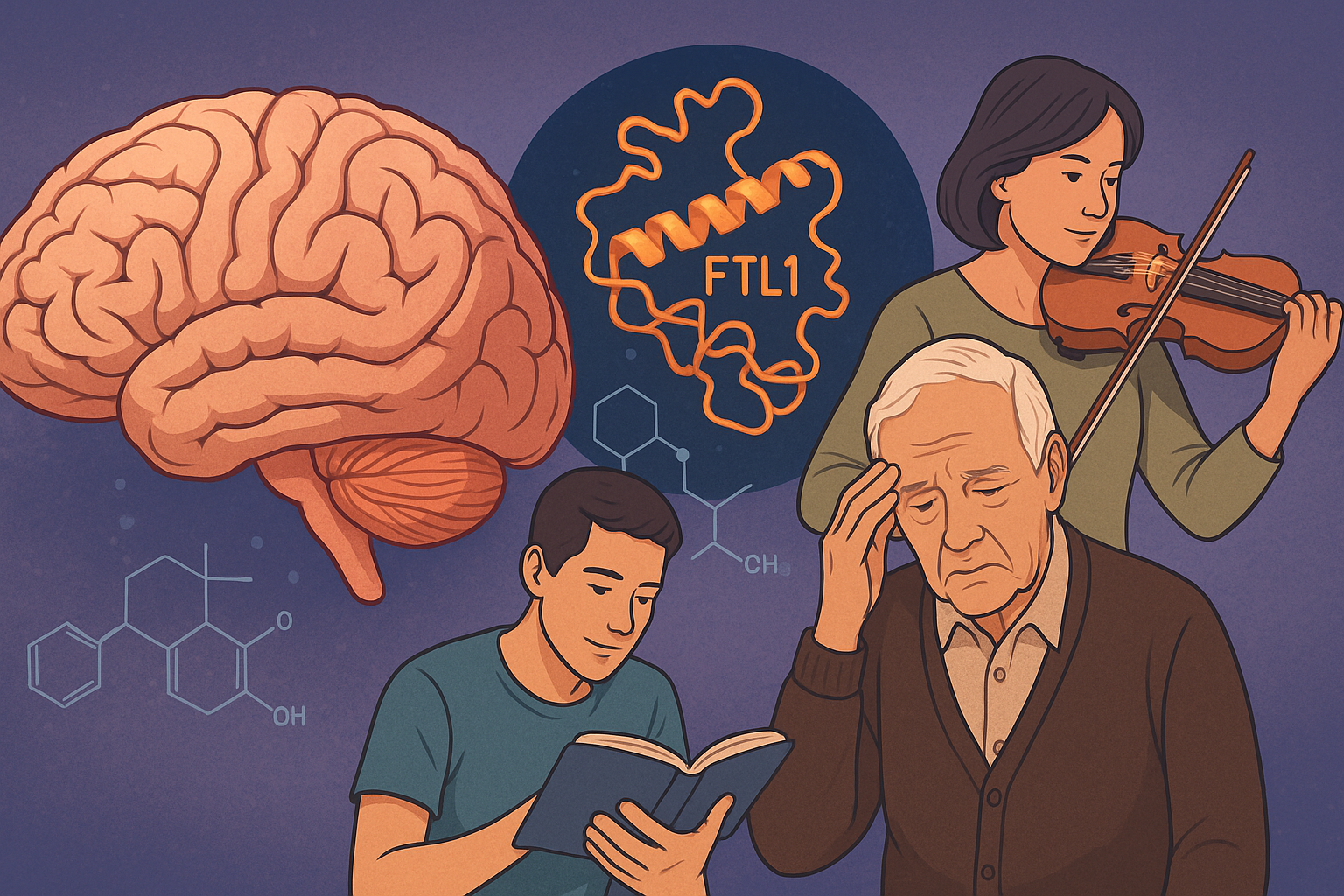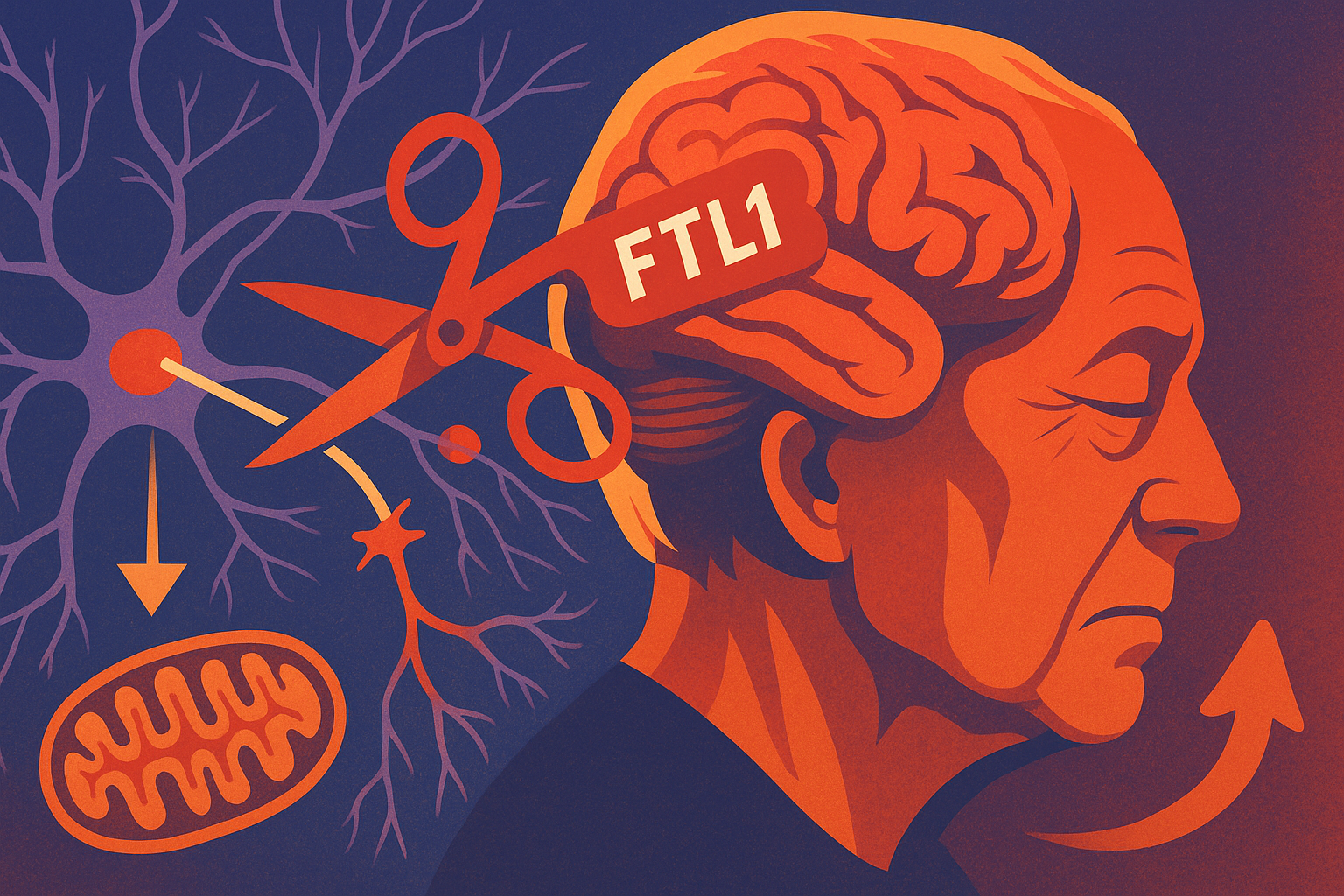Scientists Found the Brain's "Aging Switch" (And How to Turn It Off!)
The story of the hidden protein that quietly sabotages your memory as you age, and the discovery that could change how we think about getting older.

POV: You're 75 years old, standing in your kitchen, looking for your keys. You know you just had them. You retrace your steps, check your pockets again, feel that familiar frustration creeping in. "I'm getting old," you think with a hint of resignation.

This moment, and thousands like it, might all trace back to a single protein gone rogue in your brain. And more importantly, what if scientists figured out how to stop it?
The research discussed was published in Nature Aging on August 19, 2025, by scientists at UC San Francisco's Bakar Aging Research Institute.
The Hunt for the Aging Culprit

For decades, researchers have been like detectives trying to solve the mystery of why our brains slow down as we age. They knew the hippocampus (part of the brain where memories form) was at the center of the crime scene. But with thousands of proteins changing as we age, finding the real culprit seemed impossible.
That's when scientists at UC San Francisco decided to take a different approach. Instead of looking at the usual suspects, they examined every single protein in the mouse hippocampus, comparing young brains to old ones with forensic precision.
Out of thousands of proteins, one stood out as dramatically different between young and old brains.
Meet FTL1 - a protein that's been quietly sabotaging your memory for years.
(Ferritin Light Chain 1; abbreviation FTL comes from "Ferritin" (FT) and "Light" (L))
The Protein That Steals Your Memories

Here's what FTL1 does to your aging brain, and why it's so devastating:
- It cuts the wires.
If you think of your brain cells like a massive telephone network, FTL1 cuts the phone lines, reducing connections between neurons in your hippocampus. Fewer connections mean slower thinking and weaker memories. - It slows down the power plant.
Every brain cell has tiny powerhouses called mitochondria (as you remember from your biology classes). FTL1 puts the brakes on these cellular engines, leaving your neurons sluggish and energy-starved. - It grows stronger with age.
Unlike other aging factors that accumulate gradually, FTL1 seems to compound its effects over time, creating a downward spiral of cognitive decline.
The Experiment That Changed Everything

The UCSF team took three groups of mice:
- Old mice with naturally high FTL1 levels (poor memory, weak brain connections)
- Young mice that they artificially boosted with extra FTL1
- Old mice where they blocked FTL1 production
The results were mind-blowing:
- Young mice with extra FTL1 started acting old: forgetting mazes, making fewer neural connections
- But old mice with blocked got their youth back: better memory, stronger brain connections, more energetic cells
As lead researcher Dr. Saul Villeda put it: "It is truly a reversal of impairments. It's much more than merely delaying or preventing symptoms."
What This Means for Your Future
This discovery opens three potential pathways to keeping your brain young:
- The Direct Approach
Scientists could develop drugs that block FTL1, sort of like putting a lock on the switch that triggers aging in your brain. - The Metabolic Route
Since FTL1 slows down cellular energy production, researchers found that metabolic boosters can counteract its effects. - The Prevention Strategy
Understanding FTL1 might help us identify who's at risk for cognitive decline years before symptoms appear, allowing early intervention.
The Reality Check: When Will This Help You?

I wish I could tell you there's a pill coming next year. The truth is more complex:
If you're in your 20s or 30s: This research might directly benefit you. By the time effective FTL1 therapies reach the market (likely 10-15 years), you'll be entering the age when they could make the biggest difference.
If you're in your 40s or 50s: You're in the sweet spot. Early interventions targeting FTL1 could potentially prevent the cognitive decline that typically starts in your 60s.
If you're 60+: While you might not benefit from the first generation of FTL1 therapies, this research could accelerate development of other anti-aging treatments that reach market sooner.

That 75-year-old version of you, frustrated and searching for keys? In the future shaped by this discovery, they might instead be learning a new language, reading upside down, mastering a musical instrument, or simply enjoying the sharp, clear thinking of their younger self.
The future is bright, bring sunglasses.
Cheers, Zvonimir